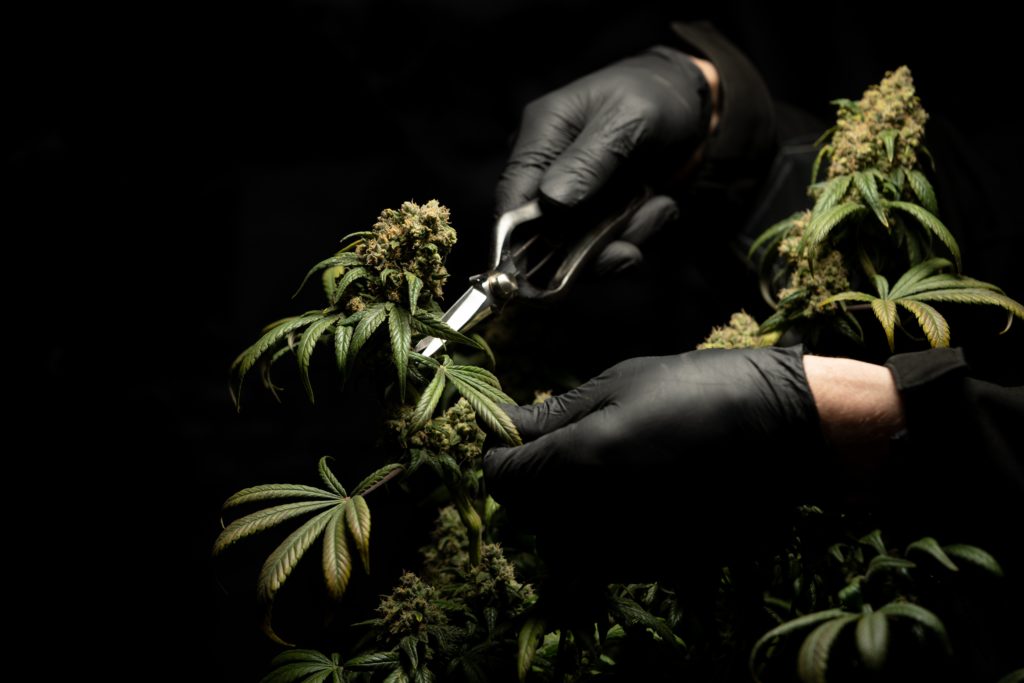New cannabis research from the National University of Hurlingham (UNAHUR) in Argentina is looking to use cannabis in biotechnology applications. Specifically, the researchers are interested in extracting anti-microbial substances found in cannabis for use in topical creams used to treat skin infections, such as those caused by burns, diabetes, ulcerative wounds, or other injuries and conditions.
Cannabis Research in Biotechnology


A technological platform for the analysis of medicinal properties and the development of new phytotherapeutic compounds will begin to be developed within the framework of a research project presented by the National University of Hurlingham (UNAHUR) in Argentina. Recently approved by the Argentine National Ministry of Health through Resolution 1439/2021, it is aimed at the cultivation of cannabis for medical and scientific research purposes.
But this isn’t the only cannabis-based research project that’s currently being carried out. Keep up to date with all the latest cannabis research and news using our companion Hemp.im cannabis news app.
Does Cannabis Have a Use in Treating Skin Infections?
Many of the molecules generated by cannabis plants are related to their antimicrobial activity. The intention of the project is to evaluate these formulations so that creams or products for topical application in skin infections, such as those caused by burns, diabetes or ulcerative wounds, can be generated from them,” said Paulo Maffia, director of the project, who will be in charge of its organization, planning and design.
“We are very proud of the progress of this research project as it responds to a struggle of thousands of Argentine men and women on the possible medicinal, therapeutic and palliative uses of the cannabis plant. This was proposed by Congress last year,” said the Secretary of University Policies and Rector on leave of absence of the UNAHUR, Jaime Perczyk.
Program Framed by Special Cannabis Research Laws
Law 27,350 created the National Program for the Study and Research of the Medicinal Use of the Cannabis Plant, its derivatives and non-conventional treatments, within the orbit of the Ministry of Health, which among its objectives incorporates the development of scientific evidence on different therapeutic alternatives to problems that are not addressed by conventional medical treatments; and research on the therapeutic and scientific purposes of the cannabis plant and its derivatives in human therapeutics.
Within this framework, the National University of Hurlingham also informed that it will have its first doctoral fellow in Science and Technology, who will carry out her doctorate within the research project for the cultivation of cannabis for scientific purposes. She is Ingrid Corleto, who won the scholarship co-financed by the Argentine National Agency of Public Laboratories (ANLAP), which is attached to the National Ministry of Health, and the National Council of Scientific and Technical Research (CONICET).
Increasing Interest in Plant Biotechnology
“Since its beginnings, UNAHUR has been interested in plant biotechnology, which was spearheaded by the acquisition of the Biofactory. This project concretizes our permanent aspiration to put knowledge and research in Basic Sciences at the service of those who need it most,” explained Walter Wallach, Vice President.
In August it will be three years since the inauguration of the laboratory for in vitro micropropagation of plant species. This is the UNAHUR Biofactory, a mobile laboratory specialized in plant biotechnology. It has been in operation for several months now after intense calibration work.
It takes a considerable time to set up a laboratory of this type, requiring numerous adjustments and tests for it to work properly. Although there are still some modifications to be made to the equipment to finalize operational details, the laboratory will soon be able to make its first plants available to the community.
__
(Featured image by CRYTALWEED cannabis via Unsplash)
DISCLAIMER: This article was written by a third party contributor and does not reflect the opinion of Hemp.im, its management, staff or its associates. Please review our disclaimer for more information.
This article may include forward-looking statements. These forward-looking statements generally are identified by the words “believe,” “project,” “estimate,” “become,” “plan,” “will,” and similar expressions. These forward-looking statements involve known and unknown risks as well as uncertainties, including those discussed in the following cautionary statements and elsewhere in this article and on this site. Although the Company may believe that its expectations are based on reasonable assumptions, the actual results that the Company may achieve may differ materially from any forward-looking statements, which reflect the opinions of the management of the Company only as of the date hereof. Additionally, please make sure to read these important disclosures.
First published in LALICUADORA, a third-party contributor translated and adapted the article from the original. In case of discrepancy, the original will prevail.
Although we made reasonable efforts to provide accurate translations, some parts may be incorrect. Hemp.im assumes no responsibility for errors, omissions or ambiguities in the translations provided on this website. Any person or entity relying on translated content does so at their own risk. Hemp.im is not responsible for losses caused by such reliance on the accuracy or reliability of translated information. If you wish to report an error or inaccuracy in the translation, we encourage you to contact us.



Comments are closed for this post.